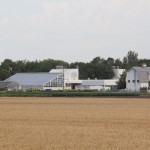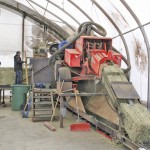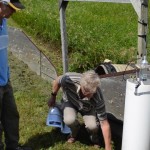
Tag Archives Research

Manitoba Beef and Forage Inc. research projects have started
First-year projects include energy-dense forages, pasture species and rotational grazing practices

Don’t throw money at public research
We need a combination of private, public and producer investment in order to remain competitive

Monsanto to shut three R+D centres next year

Agriculture research needs to focus on future challenges
The institute said rising population, climate change and the need to find alternatives to fossil fuels are priorities

Editorial: Beauty and the farm

Guenther: Buffalo bean more than floral for cancer researchers

CFGA makes the case for more publicly funded forage research
The association also has a plan for performance testing new varieties and restoring lost inoculants

Study: Can Manitoba crops reverse prediabetes?
Manitoba researchers team with Mayo Clinic to see if some foods can delay or prevent diabetes

Hog barn workers carry drug-resistant bacteria even after they leave the farm
A small study of North Carolina hog barn workers turned up surprisingly high levels of persistent and resistant bacteria

VIDEO: Touring the ebbs and flows on the Manitoba Escarpment, Part Two
Monitoring stations and water filtration systems further research in south Tobacco Creek watershed


